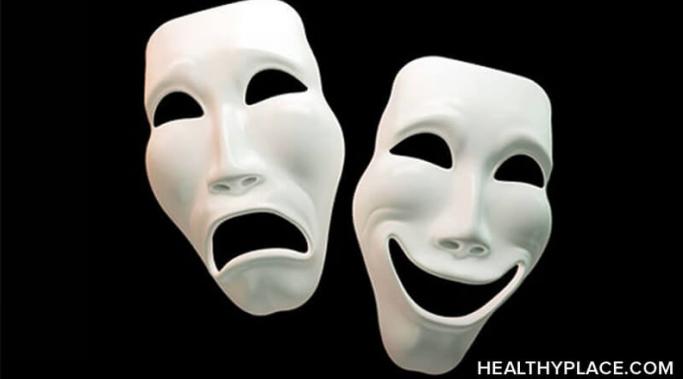Sometimes people don’t believe I’m particularly sick. They meet me, I look fine, I interact, I charm, I wit and all seems, if not normal, at least something reasonably normal adjacent.
And that’s fine. It’s by design. Being a high-functioning mentally ill person, I can’t really afford to run around with my hair on fire. But faking normalcy, happiness and pleasure is a tricky and very expensive bit of business.
Being Crazy
I’m not a fan of New Year’s resolutions. I generally find them phony, unreasonable and dead by the second week of January. I feel if you’re ready for change in your life you make change at that moment, not when a ball drop tells you to.
That being said, people insist on making New Year’s resolutions anyway. It’s a psychological and societal time of renewal and a life reset that people choose to mark with promises. So if you’re bipolar, what kind of New Year’s resolutions might be helpful?
I’m spending this Christmas back in the town where I grew up, sleeping in my mother’s guest room. I have to be there a week. A week with parents and siblings. A week of turkey and tiny oranges. A week of me silently begging to go home.
But I understand that holiday obligations are, well, obligatory, so I do have some methods for trying to survive it.
I am a word-fetishist. I adore words. They are my playthings. They are my blankies. I generally mold them, shape them and occasionally break them at my leisure.
But I also respect words. I respect their meaning and their use outside the bounds of current politically correct, self-help thinking, but somehow the rest of the world wants to complain because I call a spade a shovel.
Many of us with a mental illness have tried to “power through” it. We have tried to muscle through the pain without getting help of any kind. Most of us don’t want to admit we need help. Most of us don’t even want to admit we’re sick. We think that we’ll be fine without doctors and therapists and pills. We think that they are the enemy. We think we’re better off without them.
We are so ridiculously wrong.
I get all manner of comments here and many of them scrape against my bones. Because I know these people. Because I know their brains. Because I am these people.
Sometimes people think because I write or advocate or win awards I am not them, but it is precisely because I am them that I can do these things. It is precisely because I feel their desperation that I can truly write about it. One does write what they know, after all.
Next week is Mental Illness Awareness Week in Canada and the US. It's our week to get out, speak up and be heard. It's our week not to be ashamed of our illness or the illness of our loved ones. It's our week to march, write, Twitter, Facebook, talk and tell politicians how important issues of mental illness are.
But what if you don't want the world knowing you have a mental illness?
How are you?
This is one of the most disingenuous, lie-provoking, overused sentences in the English language. How are you? We say it to fill time and pretend that we care about people whom we obviously don't.
As no one is interested in actually knowing the answer, I have a series of pat answers I typically give. Snazzy. Fabulous. Wonderful. Delightful. Sparkly. Peaches and cream. You?
But the truth of the matter is, when someone asks how I am, even if they really wanted to know, it would make no difference, because really, I have no idea.
Kate White, our anxiety blogger here at HealthyPlace asked the question: what does a mental illness feel like? Well, that's a big question. I've been writing for years to answer it. In today's bipolar video though, I expose one facet of crazy that really ruins my day.
One night in 2007, I started a new antipsychotic. It was to be taken at dinner time. I did as told and took it at the universal dinner time of 6 pm.
By 7 pm, I had mostly lost touch with reality. I was suddenly so tired that my eyes wouldn’t open but I was far too anxious, scared and twitchy to go to sleep. I felt incredibly ill. I was frantic, terrified and panicked. I was thrashing in a sharp, steel cage between sleep and wake with no way out. I cannot express to you the horror of that night.
Bipolar medication side effects suck.





